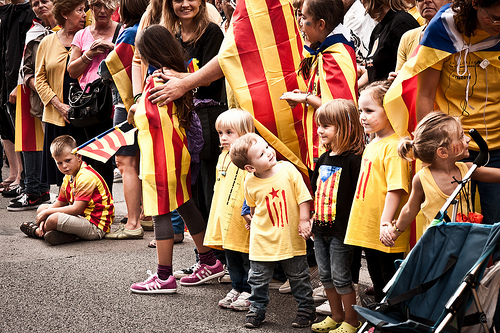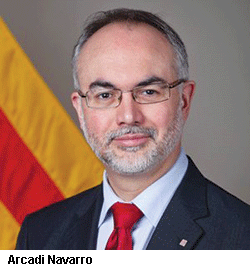
This ultra-nationalist alliance of hard rightists and (supposed) leftists believes that independence can only be achieved by disobedience and rebellion. Puigdemont represents the ultra-nationalist line, now supported by a party that was once on the political left, the CUP and, the main civic organisation the ANC, as well as the shock troops of the street, known as the CDR. The goal of independence remains central to its narrative but so is the belief that independence can only be achieved by a super-majority of Catalans, in the absence of international support and with Spain unwilling to countenance secession. ERC has been pro-independence since the late 1980s and now argues that it is essential for Catalan independence to obtain more support than the 47% it has received in two elections, in September 2015 and December 2017. Significantly, Junqueras and ERC have interpreted the failure of October 2017 quite differently to the ultra-nationalists and rightists loyal to Puigdemont. These new details have only emerged in recent months and increasingly Oriol Junqueras, now imprisoned for almost a year, has attained ever greater moral leadership, whilst that of Puigdemont is rapidly eroding. Due to these events and the unknown backstory, Puigdemont for a time came to embody the Catalan independence struggle, both internally and internationally. Puigdemont’s principal political rival and leader of ERC, Oriol Junqueras, was imprisoned on remand soon by the Spanish authorities, together with other Catalan civic and political leaders. Thus within 24 hours of what simply became a symbolic declaration of independence, Puigdemont had departed. Yet Puigdemont himself had already decided to flee to Belgium, without even informing his cabinet. We now know that after the declaration of independence on 27 October 2017, Carles Puigdemont called on his cabinet to attend their ministries on the following Monday, 30 October. The Catalan parties and their leadership had not anticipated that they would end up being charged on a range of counts, including rebellion, and many leading figures imprisoned. However, whilst the mainstream political representation of Catalan independence was bluffing, the Spanish state was not. The rivalry between the centre left Esquerra Republicana de Catalunya (Republican Left of Catalonia), ERC and the ever-changing names of the mainstream centre-right nationalist force once known as Convergència prevented public recognition that the independence push was simply a bluff. We now know that the movement had no real strategy for independence and continued with its push, desperate for European intervention to force Madrid to the negotiating table.
CATALONIA INDEPENDENCE PRO CON TORRENT
Finally, there is the diminishing credibility of Carles Puigdemont, the former President of the Catalan regional government, now in exile in Belgium.Ī torrent of new studies on the events of September and October 2017 now give us the opportunity to more accurately assess the dramatic failure of Catalan independence to achieve any of its goals.

A further component is the intense competition between the two major pro-independence parties. Part of this rupture is a divergence of analytical approaches as to why the independence movement so dramatically failed in the autumn of 2017. The movement is ruptured internally, and split both strategically and ideologically. The reverberations from the failed attempt at secession in October 2017 by the movement for Catalan independence continue to play out. He is the author of ‘The Rise of Catalan Independence.


Andrew Dowling, Senior Lecturer in Catalan and Spanish History at Cardiff Univeristy. Andrew Dowling sees a rising leftist influence in the Catalan independence movement, seeking a wider popular basis in Catalonia for independence and progressive policies.


 0 kommentar(er)
0 kommentar(er)
